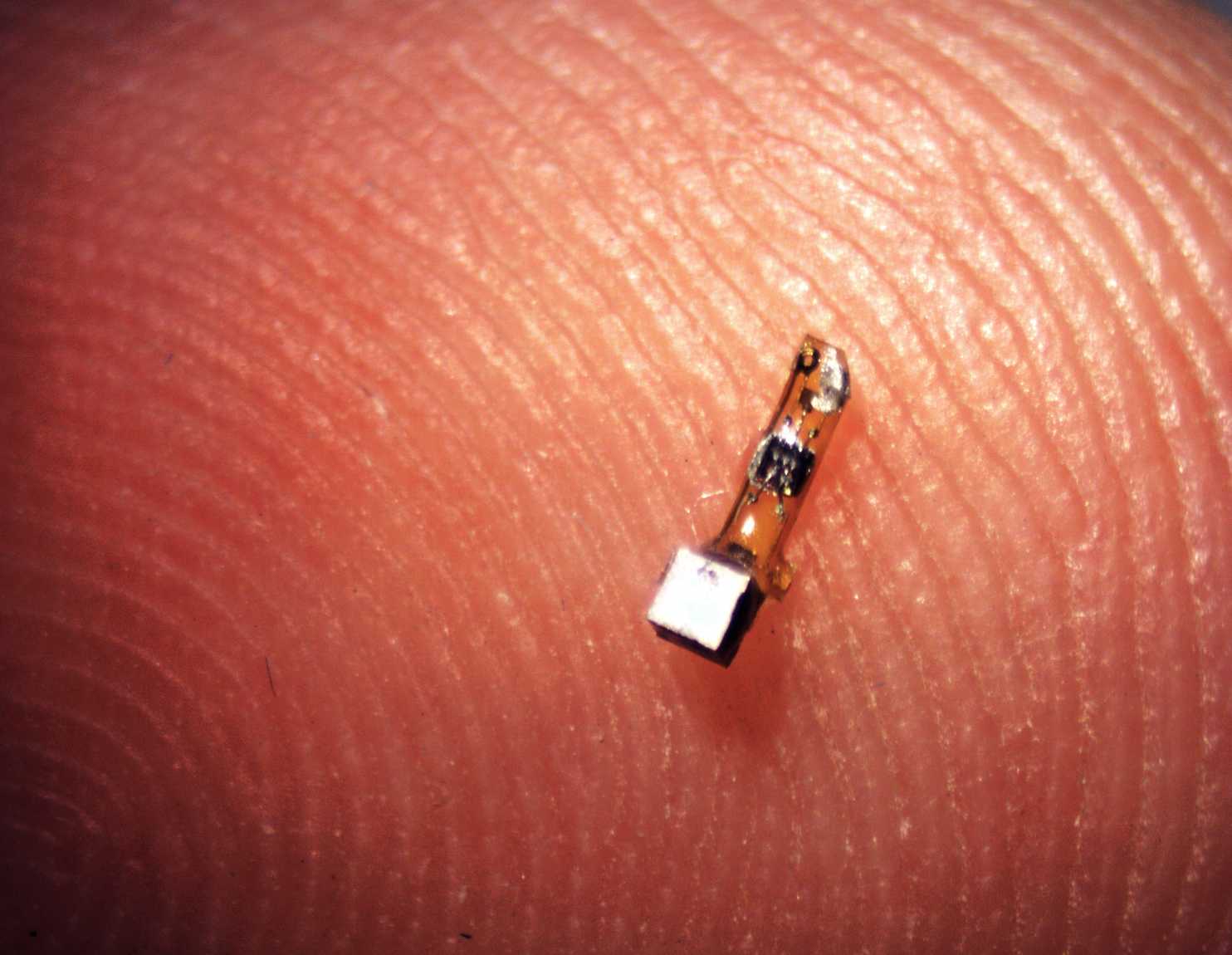The benefits of the technology for humans, while still largely hypothetical, are promising. The sensors could allow physicians to monitor the health of organs, create new therapies for neurological disorders, and help the physically impaired to control prosthetics.
While chips have been implanted in humans and other animals before, these sensors mark a significant improvement because they are small, wireless, batteryless, and could last in the body for years without degrading, said Michel Maharbiz, the associate professor who devised and studied the sensors alongside neuroscientist Jose Carmena.
“Hopefully the [tiny sensors] demonstrate a new direction for the field, and then you could build the consensus that’s needed to drive these forward,” Maharbiz said.
